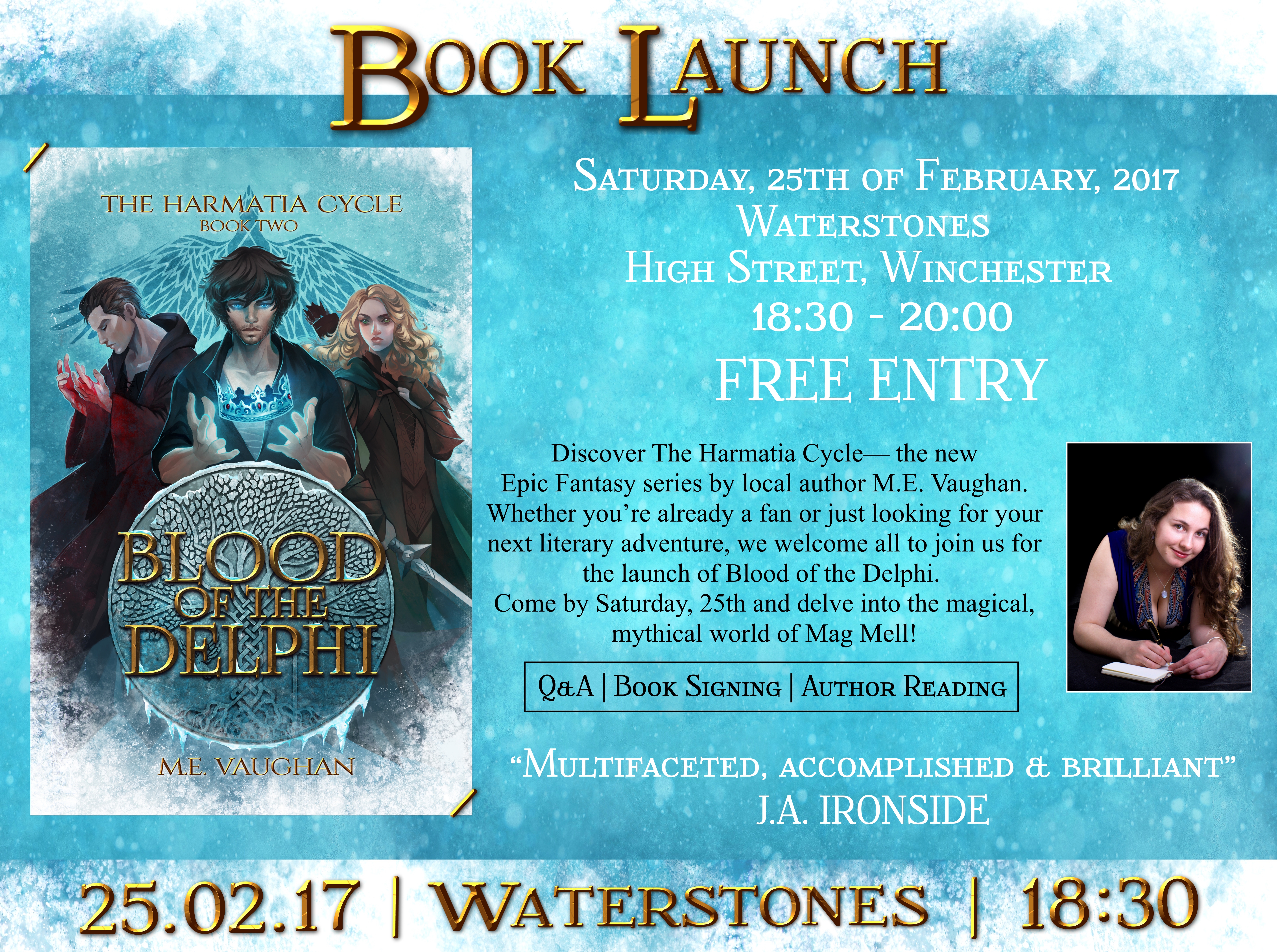My work means that I like to keep an eye on upcoming competitions and opportunities for writers, particularly in the UK and Ireland. As I am frequently sharing these, I thought it might be prudent to compile a list of the competitions and opportunities that I found. I will continue to update this list as and when I hear of new oppertunities.
Entering competitions is a fantastic way of building up a portfolio of publications, getting used to the submission process and training yourself to meet deadlines. It’s also an excellent way of maintaining your creativity, as it can challenge you to try different forms or explore new themes.
While I aim to only share competitions and opportunities from reputable and trust-worthy sources, all writers who enter any of the competitions listed below do so at their own discretion, and on the understanding that I have no affiliation with any of the competitions hosts, and claim no responsibility for them. All due diligence should be taken whenever you are submitting your work anyway. Make sure that you read the terms & conditions and entry requirements of each individual competition and understand them fully before submitting.
Information listed on this page may be out of date or incorrect, with regards to entry requirements or prizes. The title of each competition includes a hyperlink to the competition submission page or website for convenience.
SEPTEMBER
MYSLEXIA CHILDREN’S & YA NOVEL
Deadline: 21st of September
CLOSED
MYSLEXIA SHORT STORY
Deadline: 21st of September
CLOSED
MYSLEXIA FLASH FICTION
Deadline: 21st of September
CLOSED
ARYAMATI POETRY PRIZE
Deadline: 25th of September
CLOSED
HAMMOND HOUSE INTERNATIONAL SHORT STORY PRIZE
Deadline: 30th of September
CLOSED
HAMMOND HOUSE INTERNATIONAL POETRY PRIZE
Deadline: 30th of September
CLOSED
HAMMOND HOUSE INTERNATIONAL COMEDY PRIZE
Deadline: 30th of September
CLOSED
HAMMOND HOUSE INTERNATIONAL SCRIPT WRITING PRIZE
Deadline: 30th of September
CLOSED
HAMMOND HOUSE INTERNATIONAL SONG PRIZE
Deadline: 30th of September
CLOSED
PATRICIA ESCHEN PRIZE FOR POETRY
Deadline: 30th of September
CLOSED
NOSY CROW OPEN CALL FOR GRAPHIC NOVELS
Deadline: 30th of September
CLOSED
BRIDPORT PRIZE MEMOIRE AWARD
Deadline: 30th of September
CLOSED
OTTERY LITERARY FESTIVAL WRITING COMPETITION
Deadline: 30th of September
CLOSED
OCTOBER:
GRINDSTONE INTERNATION NOVEL PRIZE:
Deadline: 1st of October
CLOSED
COMEDY WOMEN IN PRINT SHORT STORY PRIZE
Deadline: 14th of October
CLOSED
THE GALLEY BEGGAR PRESS SHORT STORY PRIZE
Deadline: 16th of October
CLOSED
NATIONAL POETRY COMPETITION 2022
Deadline: 31st of October
CLOSED
CANTERBURY FESTIVAL FICTION PRIZE
Deadline: 31st of October
CLOSED
CANTERBURY FESTIVAL POETRY PRIZE
Deadline: 31st of October
CLOSED
ANTHOLOGY POETRY AWARD
Deadline: 31st of October
CLOSED
BEDFORD SHORT STORY COMPETITION
Deadline: 31st of October
CLOSED
BEDFORD POETRY COMPETITION
Deadline: 31st of October
CLOSED
NOVEMBER
CALIDONIA NOVEL AWARD
Deadline: 1st of November
CLOSED
BLUE PENCIL AGENCY PITCH PRIZE
Deadline: 6th of November
CLOSED
CAFE WRITERS POETRY COMPETITION
Entry Requirements: Unpublished Poetry, 40 lines max.
Judge: Jennifer Wong
Entry fee: £4.00, 3 for £10.00, £2 for any subsequent poems. (Free entry for 1 poem for low-income entrants)
Prize: £1000, £300, £200, £50 x 5
Deadline: 14th of November
LONDON READER: OPEN CALL SUBMISSIONS
Entry Requirements: Unpublished Stories, Essays, Poetry & Art about the secret lives of plants and the people who live with them. Stories/Essays: 6000 words max, 3 Poems max.
Entry fee: FREE
Prize: Paid Publication, paid by percentage of revenue on all sales
Deadline: 14th of November
TYGER TYGER: CHILDREN’S POETRY SUBMISSIONS
Entry Requirements: Unpublished Poetry featuring a refrain or a chorus, aimed at readers aged 7-11 years old. 40 lines max.
Entry fee: FREE
Prize: Publication
Deadline: 17th of November
THE OBSERVER / BURGISS PRIZE FOR ARTS JOURNALISM
Entry requirements: A previously unpublished review of 800 words max on new works in the Arts. Multiple entries allowed.
Entry Fee: £10 (Subsidy scheme for low-income entrants)
Prize: £3,000 + Publication in the Observer Newspaper, £500 x 2 for runner-ups.
Deadline: 30th of November
THE BATH CHILDREN’S NOVEL AWARD
Entry requirements: For Unpublished authors, self-published novels accepted. 5000 words max from the beginning of a completed manuscript + 1 page Synopsis.
Categories: Picture books (0-6), Chapter Books (7-9), Middle Grade (10-12), Teen & Young Adult (13-18)
Entry Fee: £29 (Subsidy scheme for low-income entrants)
Prize: £3,000, + all shortlisted entrants have the opportunity to be introduced to a list of literary agents best suited to their work.
Deadline: 30th of November
THE 2023 BETTY TRASK PRIZE
Entry Requirements Complete Novel, written in a romantic or traditional nature from new writers under the age of 35.
Entry Fee: FREE
Prize: £10,000
Deadline: 30th of November
NEW WRITERS FLASH FICTION COMPETITION
Entry requirements: A previously unpublished fiction, 300 words max. 3 submissions max per entrant.
Entry Fee: £6
Prize: £700, £200, £100 + Publication Online
Deadline: 30th of November
DECEMBER
BBC WRITERS ROOM: CALL FOR SCRIPTS
Entry Requirements: 30 Page Minimum, Genre: Drama & Comedy
Entry Fee: FREE
Prize: This is an opportunity for the BBC to find new writers
Deadline: 7th of December, 2022
JANUARY
WOMEN’S PRIZE TRUST: DISCOVERIES
Entry Requirements: For unpublished Adult Fiction novel in any genre by unrepresented author. Entrant must be a resident of the United Kingdom or Ireland, identify as a woman, and be 18+. Submission should compose of the beginning of the novel (10,000 words max) and synopsis. Novel does not need to be complete, and can be submitted to other competitions simultaneously.
Entry Fee: FREE
Prize: £5,000, offer of representation from Curtis Brown, Free place on Discoveries Writing Development Course, Year long Audible Subscription. Additional prizes for 2nd Place and Runner-Ups. See Website for details.
Deadline: 15th of January, 2023




